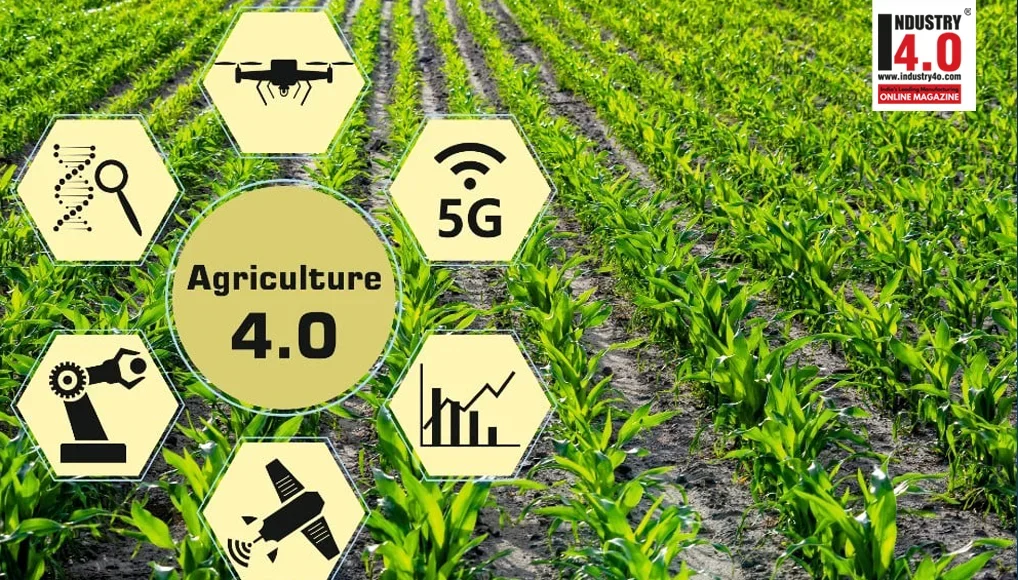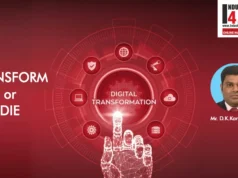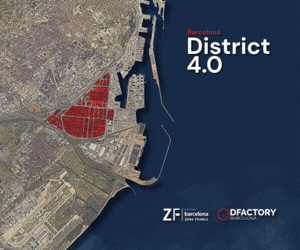Empowering Agriculture Through Industry 4.0: Inspire Agro Farms’ Vision for 1 Million Hectares
Introduction:
Agriculture has long been seen as the backbone of global economies, providing food and raw materials for billions. Yet, as the world population continues to grow and climate challenges mount, the sector faces immense pressure to evolve. The future of farming hinges on how well we can integrate digital technology to enhance efficiency, productivity, and sustainability. This is where Industry 4.0 enters the picture, revolutionizing how agriculture is managed and optimized.
At Inspire Agro Farms, we are positioning ourselves at the forefront of this transformation. Our mission is not only to feed the world but to do so with cutting-edge technological solutions. With an ambitious goal of managing 1 million hectares of farmland, we aim to leverage Industry 4.0 technologies to create an efficient, sustainable, and digitally-driven food production system. This article explores how digital transformation is reshaping agriculture, the role of processing units in scaling operations, and the future of food supply chains.
1. The Rise of Digital Agriculture: Industry 4.0 and its Impact
What is Industry 4.0?
Industry 4.0 refers to the ongoing automation and data exchange in manufacturing and industrial processes, incorporating cyber-physical systems, IoT, AI, and cloud computing. In agriculture, this means the adoption of these technologies to enhance productivity and sustainability at every stage of farming—from planting and growing to processing and distribution.
Traditionally, farming has relied on manual labor, intuition, and experience. However, the introduction of digital agriculture means that farmers can now make decisions based on precise, real-time data. For instance, IoT devices placed in the soil can monitor moisture levels, temperature, and nutrient availability, helping farmers to manage water and fertilizer use more efficiently. Similarly, drones and satellite imagery allow for large-scale monitoring of crops, helping to identify problems like pests or disease early, thus reducing crop loss.
Key Technologies Driving Digital Agriculture:
IoT and Sensors: These devices are embedded across fields to collect vast amounts of data on soil health, weather patterns, and crop growth. This data can be processed and analyzed in real-time to inform farmers about the best times to plant, irrigate, or harvest.
Artificial Intelligence (AI): AI systems use data from IoT sensors to predict weather patterns, optimize crop yields, and make recommendations on resource usage. AI can also analyze market trends to help farmers decide which crops to grow based on future demand.
Drones and Satellite Imaging: These technologies offer a bird’s-eye view of the farm, helping farmers monitor the health of their crops across vast areas. Drones can be used to identify stressed plants, while satellite data provides long-term insights into how different parts of a farm are performing over time.
Blockchain for Food Traceability: Consumers today demand transparency about where their food comes from. Blockchain allows for every step of the food production process—from planting to processing and distribution—to be recorded in a decentralized, tamper-proof ledger. This not only ensures food safety but also fosters trust with consumers.
2. Scaling Agriculture to 1 Million Hectares: The Future of Large-Scale Farming
At Inspire Agro Farms, we are setting an ambitious goal: to manage 1 million hectares of farmland through smart, technology-driven solutions. While this vision may seem far-reaching, it represents the future of agriculture, where digital tools can make even large-scale farming more efficient and sustainable.
Managing 1 Million Hectares: A New Frontier in Agriculture
The scale of farming at 1 million hectares requires seamless integration of digital technologies. Here’s what that entails:
Precision Agriculture at Scale: Managing such vast tracts of land demands precision farming tools to ensure that each hectare is optimized for maximum productivity. With IoT sensors in place, we can track conditions such as soil moisture, temperature, and crop health in real-time. This allows us to adjust irrigation and fertilizer application with pinpoint accuracy, reducing resource waste and ensuring healthier yields.
Data-Driven Decision Making: When dealing with 1 million hectares, even small inefficiencies can result in significant losses. Data from sensors, drones, and satellite images help us make informed decisions on how to manage the land effectively. AI algorithms can analyze this data to predict crop yields, identify areas that need attention, and forecast potential issues like pest infestations or droughts.
Automated Farming Equipment: As we scale up, the use of autonomous machinery becomes essential. From self-driving tractors to robotic harvesters, automated equipment will handle the heavy lifting, allowing us to cover more ground in less time while reducing labor costs.
The Role of Processing Units: From Field to Factory
Scaling operations to 1 million hectares would require a network of processing units strategically located to handle the diverse range of agricultural outputs. These processing units, or “smart factories,” would be fully digitized, enabling automation and real-time monitoring.
Digital Twins in Processing Plants: A digital twin is a virtual model of a physical system, allowing operators to monitor and control processing units remotely. For instance, a digital twin of a food processing plant could simulate operations in real-time, helping to identify inefficiencies or predict maintenance needs before they cause disruptions.
Automated Sorting and Packaging: With such a large volume of produce being harvested, automation is crucial. AI-powered machines can sort and grade crops quickly, ensuring that only the best quality produce reaches the market. Automation also reduces the risk of human error, improving the overall efficiency of the process.
Energy Efficiency and Sustainability: Large-scale food processing can be energy-intensive, but Industry 4.0 technologies offer solutions. Smart grids and energy-efficient equipment can minimize power consumption, while waste heat from factories can be repurposed for other processes, reducing the carbon footprint of the entire operation.
3. Optimizing the Food Supply Chain: Efficiency, Traceability, and Sustainability
As Inspire Agro Farms scales to 1 million hectares, an optimized supply chain becomes vital. The food supply chain involves not just the farming and processing of crops, but also their distribution to markets and consumers. Industry 4.0 technologies help streamline this process, reducing food waste, improving food safety, and ensuring that produce reaches its destination quickly and in optimal condition.
AI-Driven Logistics and Inventory Management
Managing the logistics of transporting crops from farms to processing units, and eventually to markets, is a complex task. AI can help by optimizing transport routes, reducing delivery times, and lowering fuel costs. In addition, smart warehouses equipped with AI can monitor inventory levels in real-time, ensuring that fresh produce is shipped out first, minimizing spoilage and reducing waste.
Blockchain for Supply Chain Transparency
Consumers are increasingly demanding to know where their food comes from, how it was produced, and whether it meets certain standards. Blockchain technology allows for complete transparency across the supply chain. Every step of the process—from planting to processing to delivery—can be recorded in a blockchain, giving consumers confidence that their food is safe and ethically sourced.
Cold Chain Monitoring with IoT
For perishable goods, maintaining the cold chain is critical to ensuring freshness. IoT-enabled sensors can monitor temperature and humidity levels throughout the supply chain, ensuring that produce is stored and transported under optimal conditions. This reduces the risk of spoilage and ensures that consumers receive fresh, high-quality products.
4. Sustainability and Profitability Through Digital Transformation
Scaling to 1 million hectares is not just about increasing output—it’s about doing so in a way that is sustainable, both for the environment and for the business. Digital technologies allow us to optimize resource use, minimize waste, and reduce environmental impact, all while increasing profitability.
Water Conservation Through Smart Irrigation
Water is one of the most critical resources in agriculture, and conserving it is a top priority. With IoT sensors monitoring soil moisture levels, we can apply water only when and where it’s needed. This not only reduces water waste but also ensures that crops receive the right amount of hydration to thrive.
Reducing Chemical Usage
Pesticides and fertilizers are necessary for healthy crops, but their overuse can harm the environment. By using AI to analyze soil and crop data, we can apply these chemicals more precisely, reducing their environmental impact and ensuring that crops are healthy and safe for consumption.
Minimizing Food Waste
One of the biggest challenges in agriculture is food waste, particularly during the post-harvest phase. Digital tools help us coordinate more effectively between farmers, processors, and distributors, ensuring that produce moves through the supply chain quickly and efficiently. This minimizes spoilage and ensures that food reaches consumers while it’s still fresh.
Conclusion: Inspire Agro Farms and the Future of Digital Agriculture
Inspire Agro Farms is committed to leading the digital transformation of agriculture. Our ambitious goal of managing 1 million hectares, powered by Industry 4.0 technologies, is just the beginning. By integrating AI, IoT, automation, and blockchain into every stage of farming, processing, and distribution, we are creating a more efficient, sustainable, and profitable future for agriculture.
Through partnerships with technology providers, training programs for farmers, and ongoing innovation, we are setting the stage for a new era in farming—one that meets the demands of a growing global population while protecting the environment and ensuring long-term food security.
About the Author:

Mr. JOHN MARK KOMMINENI
Founder and Chairman
INSPIRE AGRO FARMS PRIVATE LIMITED
Mr. JOHN MARK KOMMINENI can be contacted at:













